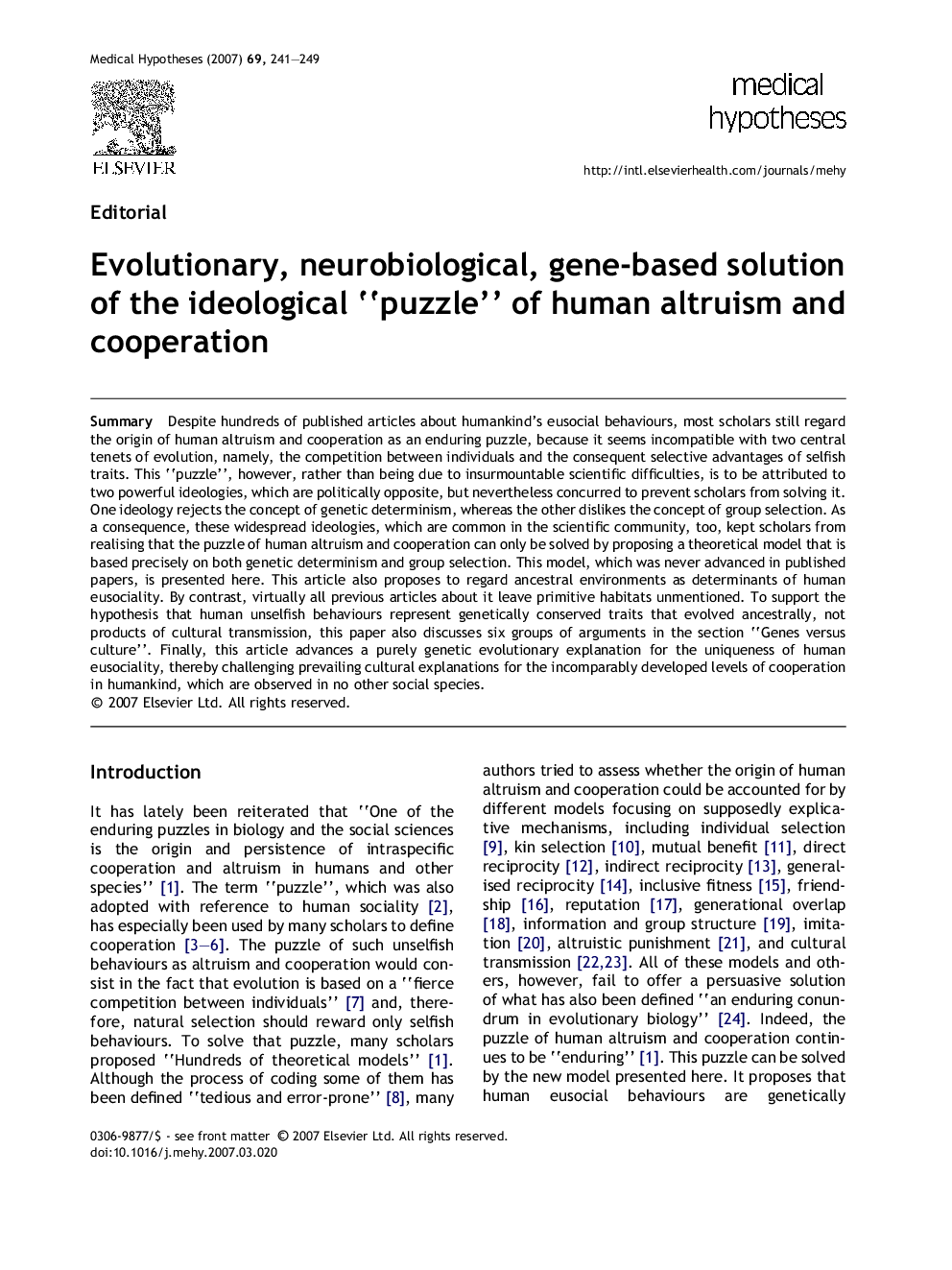| کد مقاله | کد نشریه | سال انتشار | مقاله انگلیسی | نسخه تمام متن |
|---|---|---|---|---|
| 2492067 | 1115099 | 2007 | 9 صفحه PDF | دانلود رایگان |

SummaryDespite hundreds of published articles about humankind’s eusocial behaviours, most scholars still regard the origin of human altruism and cooperation as an enduring puzzle, because it seems incompatible with two central tenets of evolution, namely, the competition between individuals and the consequent selective advantages of selfish traits. This “puzzle”, however, rather than being due to insurmountable scientific difficulties, is to be attributed to two powerful ideologies, which are politically opposite, but nevertheless concurred to prevent scholars from solving it. One ideology rejects the concept of genetic determinism, whereas the other dislikes the concept of group selection. As a consequence, these widespread ideologies, which are common in the scientific community, too, kept scholars from realising that the puzzle of human altruism and cooperation can only be solved by proposing a theoretical model that is based precisely on both genetic determinism and group selection. This model, which was never advanced in published papers, is presented here. This article also proposes to regard ancestral environments as determinants of human eusociality. By contrast, virtually all previous articles about it leave primitive habitats unmentioned. To support the hypothesis that human unselfish behaviours represent genetically conserved traits that evolved ancestrally, not products of cultural transmission, this paper also discusses six groups of arguments in the section “Genes versus culture”. Finally, this article advances a purely genetic evolutionary explanation for the uniqueness of human eusociality, thereby challenging prevailing cultural explanations for the incomparably developed levels of cooperation in humankind, which are observed in no other social species.
Journal: Medical Hypotheses - Volume 69, Issue 2, 2007, Pages 241–249